Global Health
Faculty members in the Department of Anesthesiology & Perioperative Medicine have been co-leading global medical missions in developing countries for a number of years. Currently there are three missions that the department sponsors: Honduras, Haiti and Liberia, and West Africa. Anesthesiology residents in our department have recently been approved to participate as part of the training program and their experiences have been overwhelmingly positive.
Global mission members travel to developing countries to assist with medical and surgical care as well as with education of local health care professionals. Participants practice anesthesiology in conditions with limited resources and supplies. In addition, numerous opportunities to teach present themselves as local health professionals are enthusiastic about learning. Additionally, global mission experiences provide cultural enrichment and personal growth that are not generally available in mainstream training.
Mission Trips
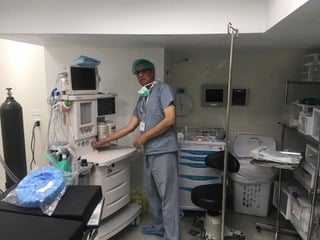
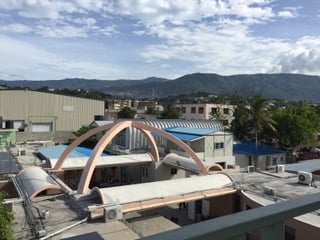
Port-au-Prince, Haiti (March 2019)
-1 week teaching and clinical experience
-Preoperative clinics, clinical experience in operating room and MD/RN/medical students teaching sessions

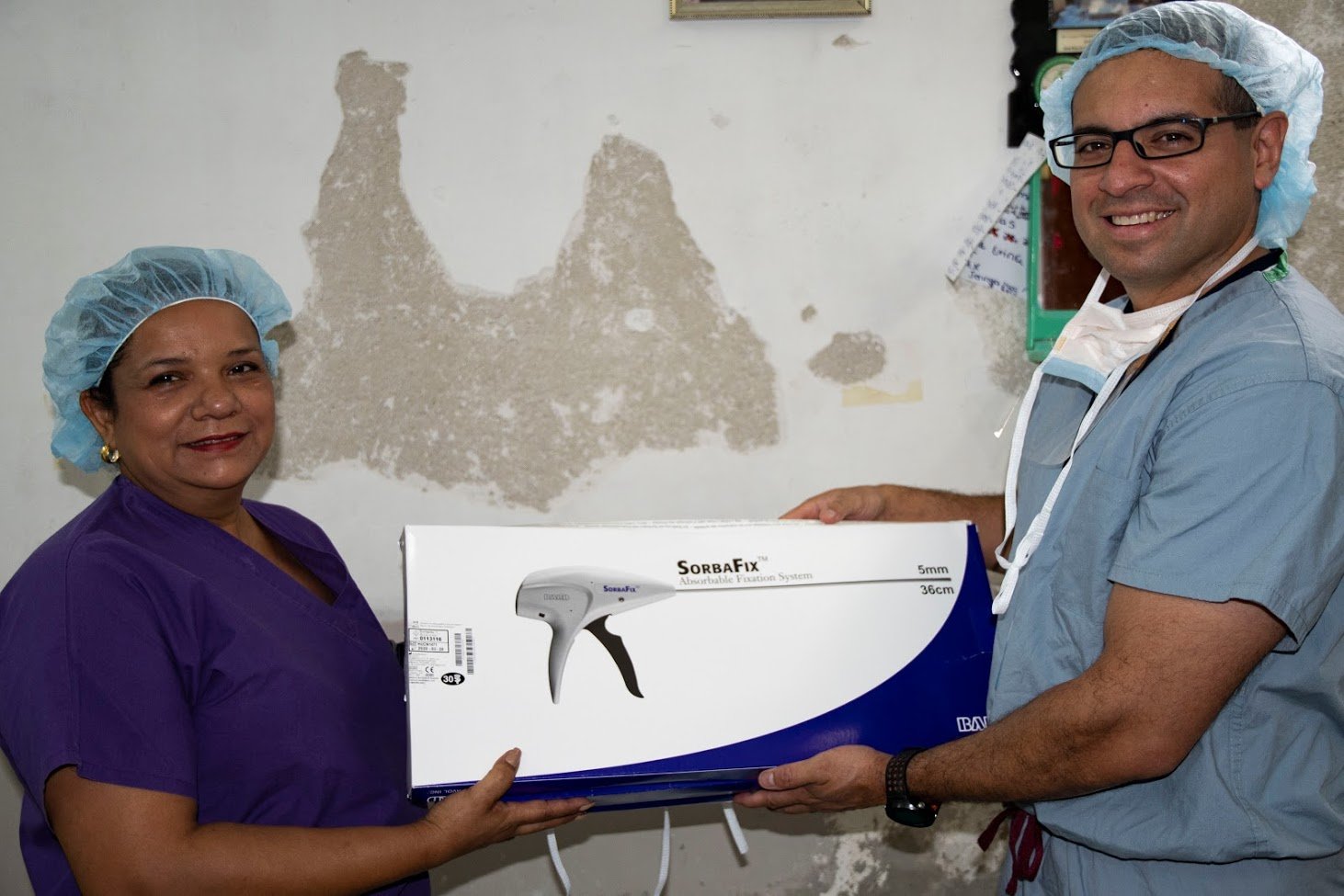
Roatan, Honduras (May 2019)
-1 week teaching and clinical experience
-Preoperative clinics, clinical experience in operating room, and MD/RN/medical students teaching sessions
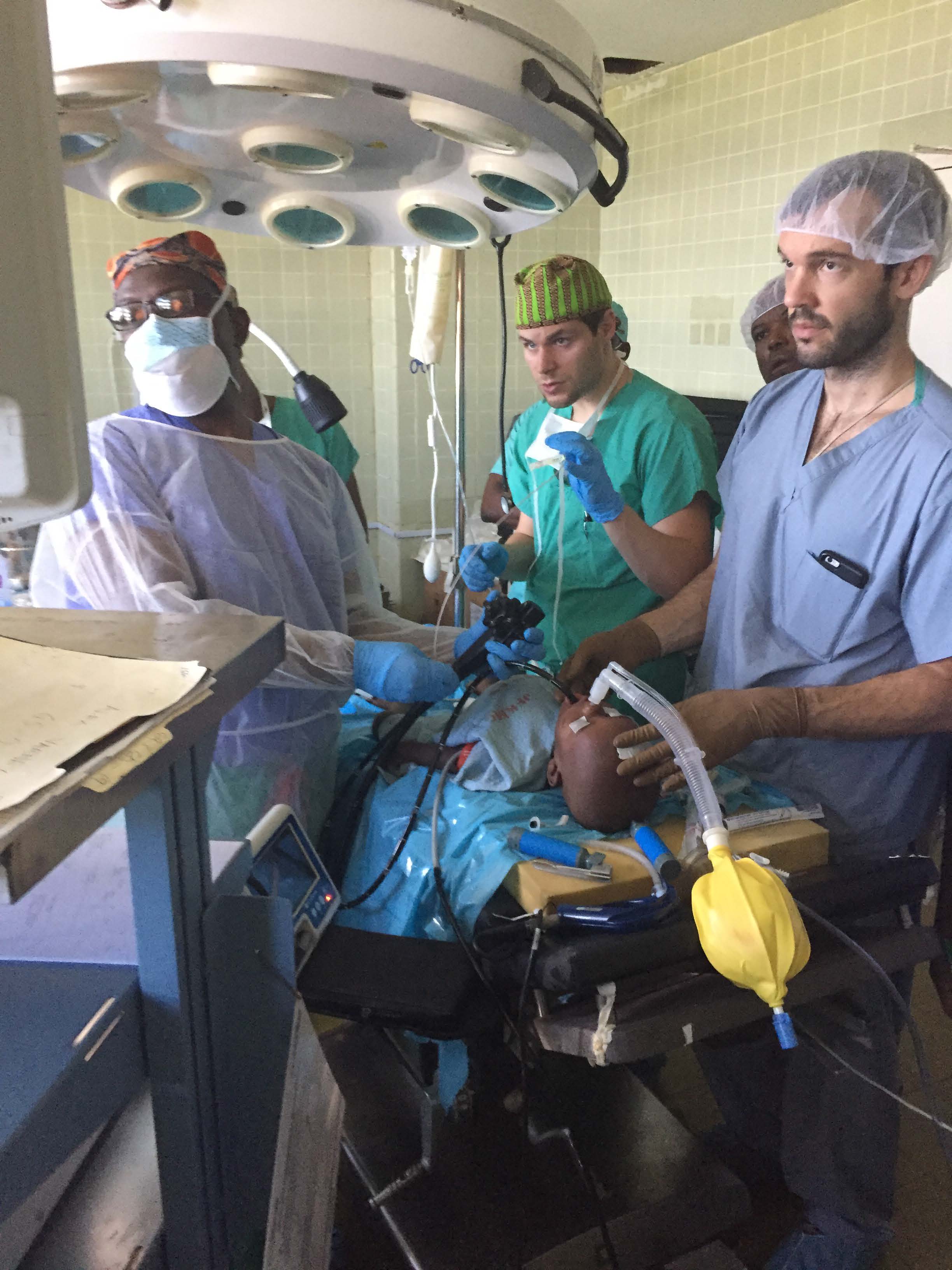
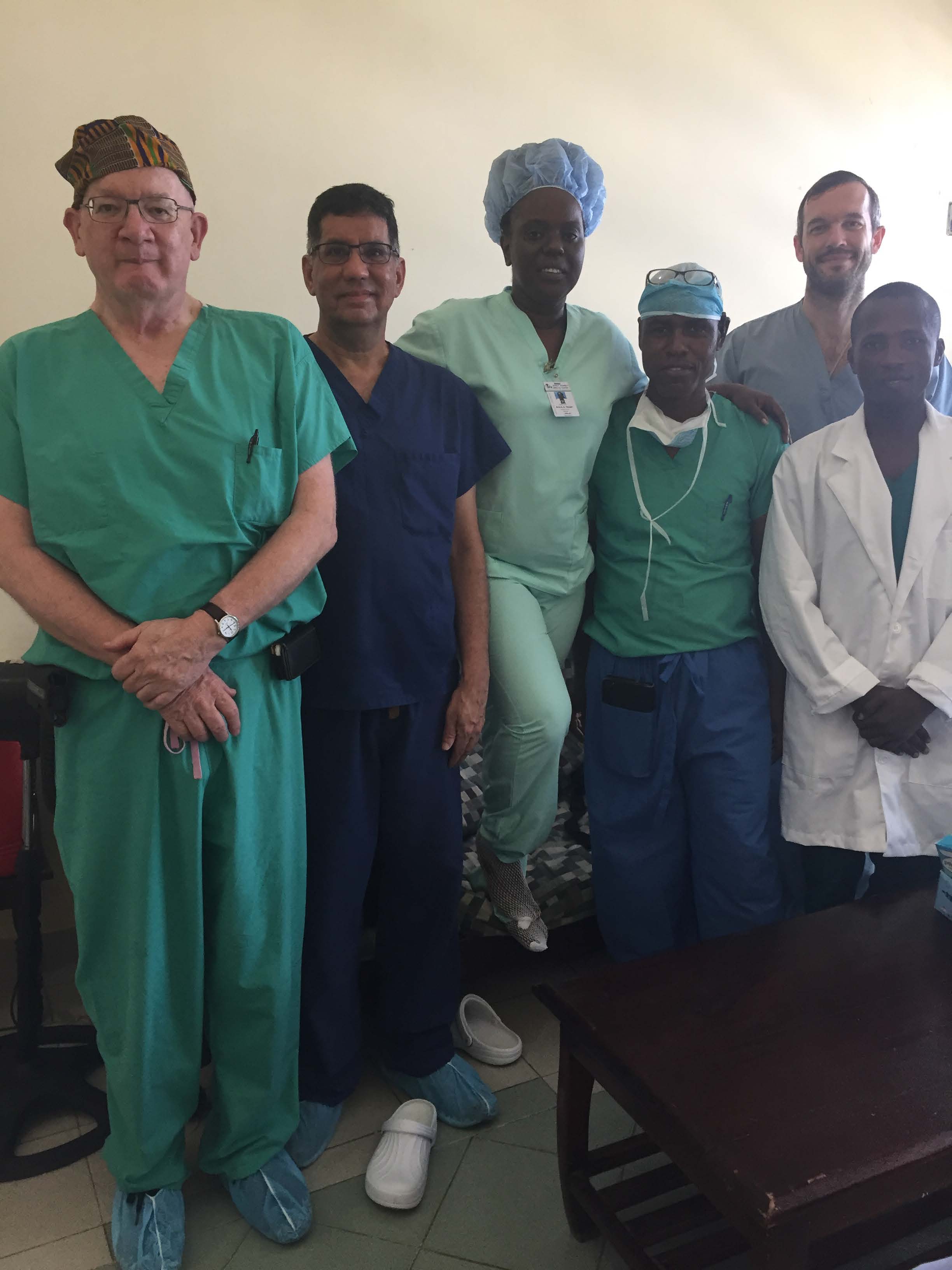
Monrovia, Liberia (September 2018)
-2 week teaching and clinical experience, morning rounds, Grand Rounds presentation
-Structured curriculum in key areas including but not limited to: trauma, airway management, fluid resuscitation, management of shock
-Liberian visa & HEARTT volunteer forms required
Here is what former global health participants have said about their experiences:

"As a SEA-HVO fellow, I had the opportunity to teach and mentor anesthesia clinical officers (ACOs) during their 18-month anesthesia training course at Queen Elizabeth Central Hospital. Daily activities consisted of morning report on overnight cases and daytime case presentations/discussions. This was followed by time in the operating rooms for intra-operative teaching and observation of a wide range of surgical pathologies and anesthetic techniques performed within the realities and constraints of a resource-scarce environment. During the afternoons, I lectured for two hours on neuroanesthesia, pharmacology, and also provided workshops on airway evaluation and management, ACLS, and intra-operative events assessment and treatment. At the end of my four week session, I was able to participate in the ACOs’ midterm evaluation by submitting exam questions and holding interactive jeopardy-style review sessions with the students (shout out to Dr. Cosar!). This experience taught me that while the role of resident-as-teacher is a daunting task requiring effective teaching methods and much advanced preparation, it also served as a real motivator for personal, clinical and professional growth as I found myself fully dedicated and invested in my students' success. This realization fueled my desire to pursue an academic career to continue growing as a learner and teacher, especially as it pertains to global health, education and research."
-Jude Divers, resident
For more information on the travel fellowship, click here!
UMass Chan Honduras Rescue Mission

"Traveling to Honduras with the Trauma Rescue Mission to Roatan was my third medical mission trip but first as an anesthesia provider. I volunteered to go with Drs. Foley, Joshi and Torres because I wanted to learn how to provide anesthesia care with limited and outdated resources. Discussing best practice guidelines and resource limitations with the anesthesia providers at Public Hospital of Roatan provided a great learning experience for both teams. Strategizing pain management options for patients with large abdominal incisions and limited medications provided an interesting challenge. Overall, the trip was rewarding and motivated me to become more involved in global health initiatives. My hope is that I will be able to help residents experience the joy of caring for men and women with no resources on international mission trips like my trip to Roatan."
-Brian Alexander, resident
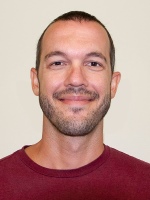 “Our trip was to JFK Hospital, in Monrovia, Liberia, with the HEARTT association. We were in the country for two weeks and in the hospital every day except Sunday; we came to work. During our time at JFK, we performed 105 anesthetics on patients ranging from five-day-olds to 85-year-olds. Procedures ranged from thyroidectomies to herniorrhaphies to lump and bump removals as well as some odds and ends such as esophageal dilations on a pair of three-year-olds who had drank lye and developed esophageal stricture. Facility conditions were much less than we are accustomed to in the United States; we had to contend with power outages multiple times a day, lack of gas analyzing equipment, reuse of all equipment and less than reliable anesthesia machines. We were fortunate enough to have local CRNA students, so I was able to take a junior attending role and do a lot of teaching. Not only did I come away with a sense of accomplishment from helping those less fortunate, but I also gained much more confidence as an anesthesiologist. My trip to Monrovia was something I will never forget and hope to continue participating in future trips as global health outreach was what first piqued my interest in medicine. I highly recommend it to anybody looking for a trip that will expand your skills and confidence as well as be good for the soul.”
“Our trip was to JFK Hospital, in Monrovia, Liberia, with the HEARTT association. We were in the country for two weeks and in the hospital every day except Sunday; we came to work. During our time at JFK, we performed 105 anesthetics on patients ranging from five-day-olds to 85-year-olds. Procedures ranged from thyroidectomies to herniorrhaphies to lump and bump removals as well as some odds and ends such as esophageal dilations on a pair of three-year-olds who had drank lye and developed esophageal stricture. Facility conditions were much less than we are accustomed to in the United States; we had to contend with power outages multiple times a day, lack of gas analyzing equipment, reuse of all equipment and less than reliable anesthesia machines. We were fortunate enough to have local CRNA students, so I was able to take a junior attending role and do a lot of teaching. Not only did I come away with a sense of accomplishment from helping those less fortunate, but I also gained much more confidence as an anesthesiologist. My trip to Monrovia was something I will never forget and hope to continue participating in future trips as global health outreach was what first piqued my interest in medicine. I highly recommend it to anybody looking for a trip that will expand your skills and confidence as well as be good for the soul.”
-Michael Lucente, resident
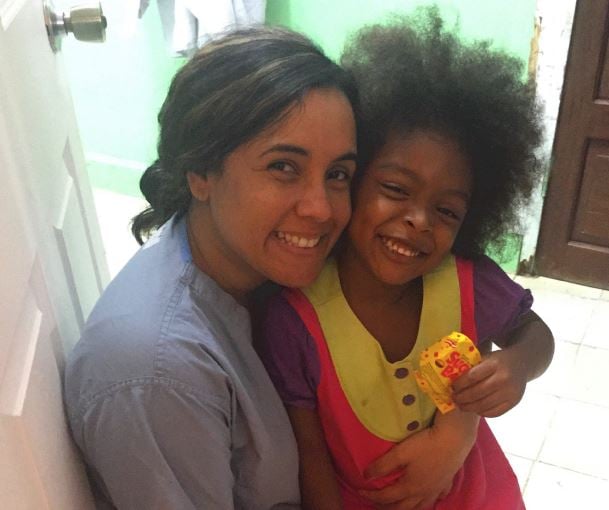 "I have been involved in a surgical trip to Honduras for the past five years. For a week in May, we provide preoperative assessments, perioperative care and education to an underserved public hospital in Honduras. Initially, my role was as a registered nurse (RN), but this year I had the privilege to attend as a student registered nurse anesthetist (SRNA)."
"I have been involved in a surgical trip to Honduras for the past five years. For a week in May, we provide preoperative assessments, perioperative care and education to an underserved public hospital in Honduras. Initially, my role was as a registered nurse (RN), but this year I had the privilege to attend as a student registered nurse anesthetist (SRNA)."
-Karen Valdes, CRNA
Additional documents
- Practical tools
- UMass Chan GHE Anesthesia competency-based goals and objectives
- Global Health Outreach Resident Expectations
Online Resources
- HVO KnowNet
- Heart Foundation
- Sugar Prep
- Global Health Learning Community
- Society for Education in Anesthesia
- Seed Global Health
- Team Broken Earth
- Association of Pediatric Program Directors Global Health Pediatric Education Group: Listing of on-line tools and peer-reviewed research to support developing/growing GH programs
- Consortium of Universities in Global Health (CUGH) educational modules on wide range of topics
- CUGH Reasoning without Resources: Clinical case series designed for those practicing in resource limited settings
- Child Family Health International webinars: Introduction to wide variety of GH topics (career development, GH ethics, human trafficking, etc)
- Ethical Challenges in Short-Term Global Health Training: Series of cases to illustrate ethical challenges may arise during short-term international research and clinical experiences
- Global Ambassadors for Patient Safety Toolkit: University of Minnesota resources for establishing partnerships
- Global Health Toolkit: Curriculum and resources for international rotations (guidelines, sample applications, checklists)
- Procedural Education for Adaptation to Resource Limited Settings (PEARLS): Videos highlighting modifications to procedures performed when limited resources
- Simulation Use for Global Away Rotations (SUGAR): Simulation-based curriculum on common practical and emotional challenges in GH
- Unite for Sight webinars: GH education and career development
- Medical Missions of Children
- Global Partners in Anesthesia and Surgery
- Operation Smile
- Society for Pediatric Anesthesia
- ASA/CASIEF
- The Society for Education in Anesthesia - SEA/HVO Traveling Fellowship Rotation
